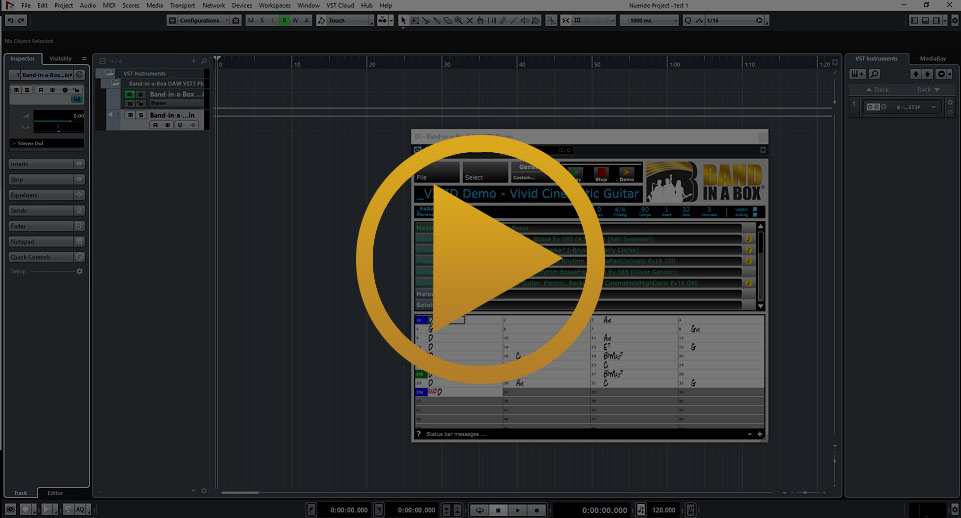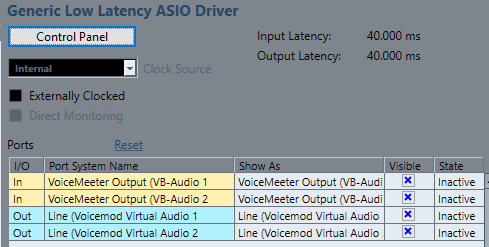
ASIO4ALL is a free and alternative audio driver which allows its users to get very low latency from their sound adapter. While most sound cards on the market allow you to playback audio without issue, ASIO4ALL provides a free alternative if you're having issues running software which increases latency on sound output. CUBASE GENERIC LOW LATENCY ASIO DRIVER. Article #1722426, updated on at 2, 59 pm. Line6 insists that the driver they have works and that i must have some configurations wrong. Afik the generic low latency asio driver comes from steinberg software. This may vary, wallpapers and provide low latency.
today, my audio interface's Asio driver stopped working for any reason I couldn't figure out yet.
I stumbled across the 'Generic low latency asio Driver' which seems to be some driver that comes with cubase.
Latency and asio capacity seem to be agreeable for me on first sight - however, I have the impression, that the sound quality is worse. Like a little bit over-compressed.
I'm not very familiar with such technical stuff and I have no possibility to compare as my original driver does not longer work, so I'd like to ask whether it is even possible that one driver creates worse sound than an other one. And maybe, if it's possible, if anyone has experiences with this generic low latency driver and can tell whether my impression may be right or not.
Many Thanks

Removing Steinberg's Generic Low latency ASIO driver Stupidly, I did not realise I was installing Steinberg's Generic Low latency ASIO driver with Cubase. While this does not seem to be causing any conflicts with my Quad Capture drivers at the moment I rather get rid of it but there does not seem to be an uninstall option. ASIO allows audio software to gain direct access to the audio device by bypassing the normal audio pathway through DirectSound. By skipping the unnecessary layers of DirectSound, ASIO diminishes the speedbumps on the route from your audio device to your computer and significantly reduces latency. Aside from low latency, ASIO allows you to see. Generally, you should use the ASIO from your audio interface. ASIO4All or other generic drivers (Cubase install a generic ASIO Driver), could be less optimised. Also, if you compare two ASIO drivers, you should not trust the reported latency. Some just compute a buffer length divided by the sample rate and not add other unknown overhead.
Audio Stream Input/Output (ASIO) is a computer sound card driver protocol for digital audio specified by Steinberg, providing a low-latency and high fidelity interface between a software application and a computer's sound card. Whereas Microsoft’s DirectSound is commonly used as an intermediary signal path for non-professional users, ASIO allows musicians and sound engineers to access external hardware directly.

Steinberg Generic Low Latency Asio Driver Download

Asio Driver Download Windows 10
ASIO bypasses the normal audio path from a user application through layers of intermediary Windows operating system software so that an application connects directly to the sound card hardware. Each layer that is bypassed means a reduction in latency (the delay between an application sending audio information and it being reproduced by the sound card, or input signals from the sound card being available to the application). In this way ASIO offers a relatively simple way of accessing multiple audio inputs and outputs independently. Its main strength lies in its method of bypassing the inherently high latency and poor-quality mixing and sample rate conversion of Windows NT 5.x audio mixing kernels (KMixer)[citation needed], allowing direct, high speed communication with audio hardware. Unlike KMixer, an unmixed ASIO output is 'bit identical' or 'bit perfect'; that is, the bits sent to or received from the audio interface are identical to those of the original source, thus potentially providing higher audio fidelity. In addition, ASIO supports 24-bit samples, unlike Windows NT 5.x MME and DirectSound which truncate 24-bit samples to the upper 16 bits, whereas Windows NT 6.x mixer provides 32-bit floating point output. Higher bit-depth samples offer the potential for a higher signal-to-noise ratio.